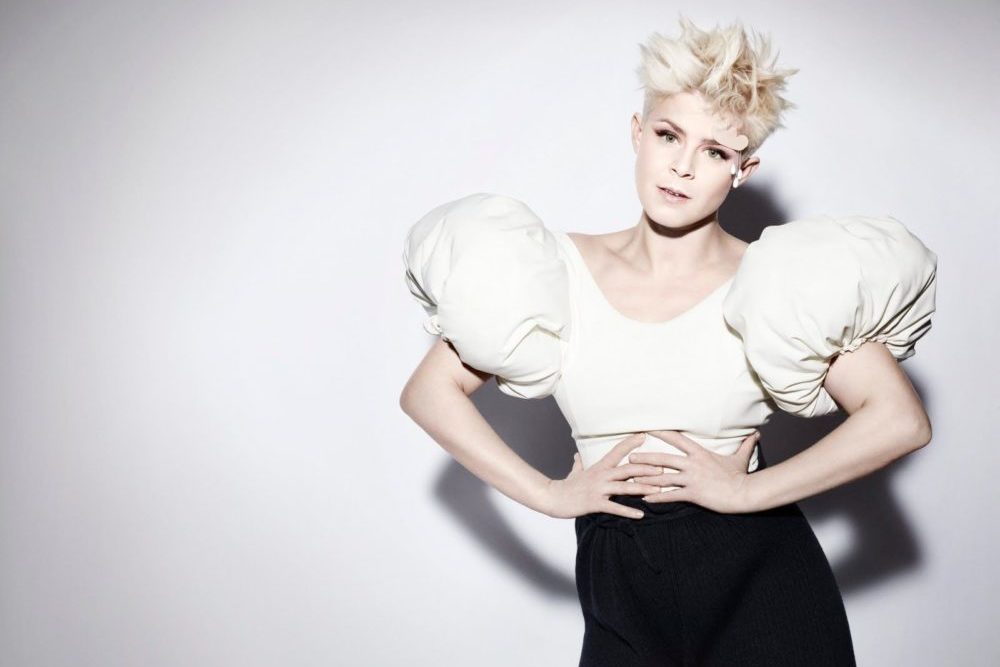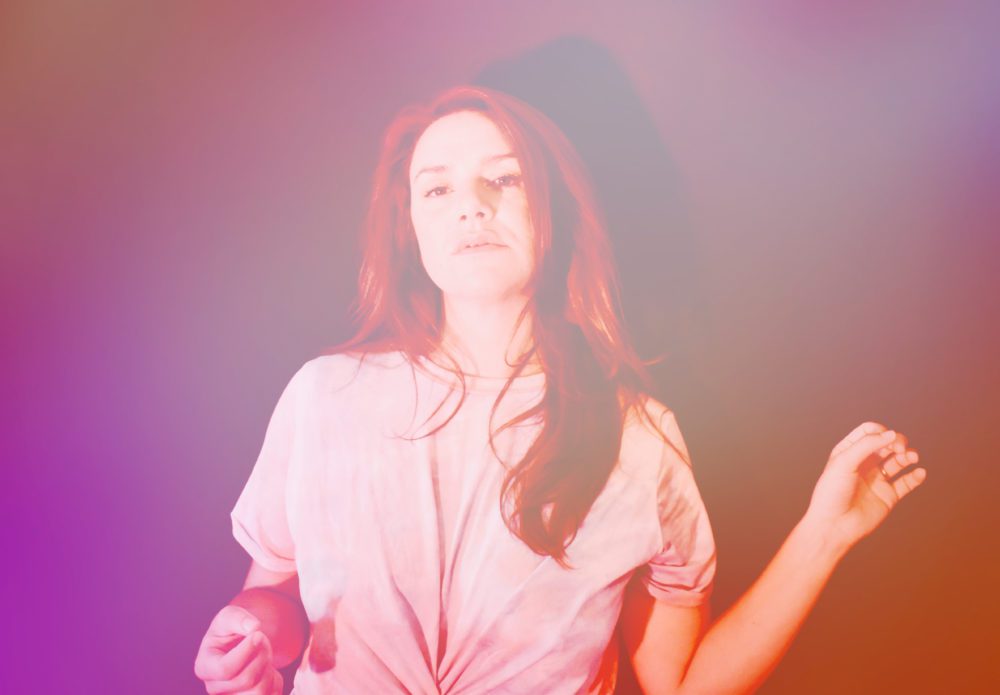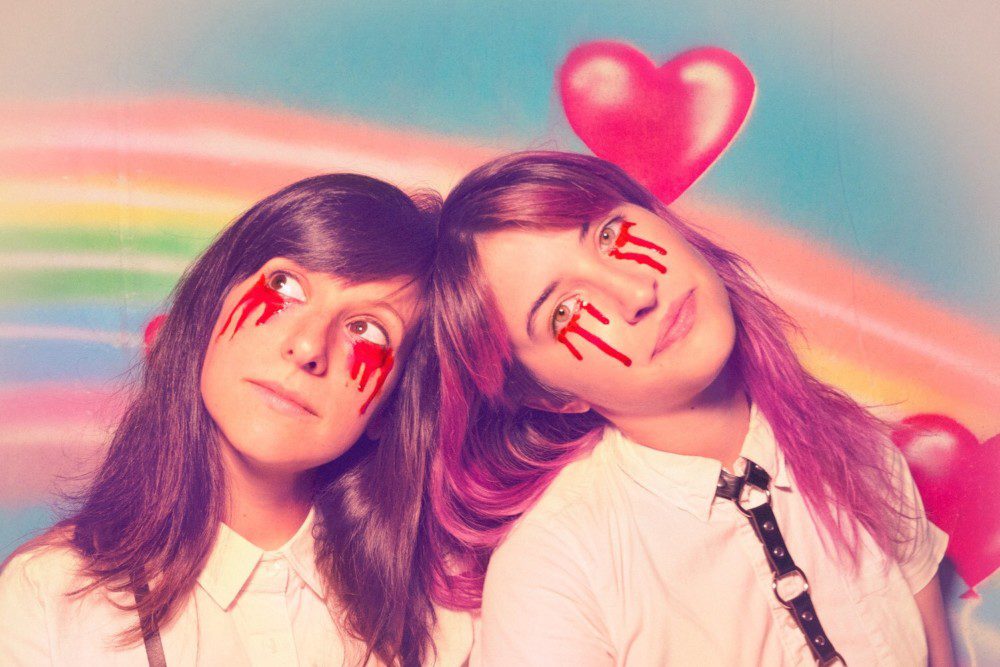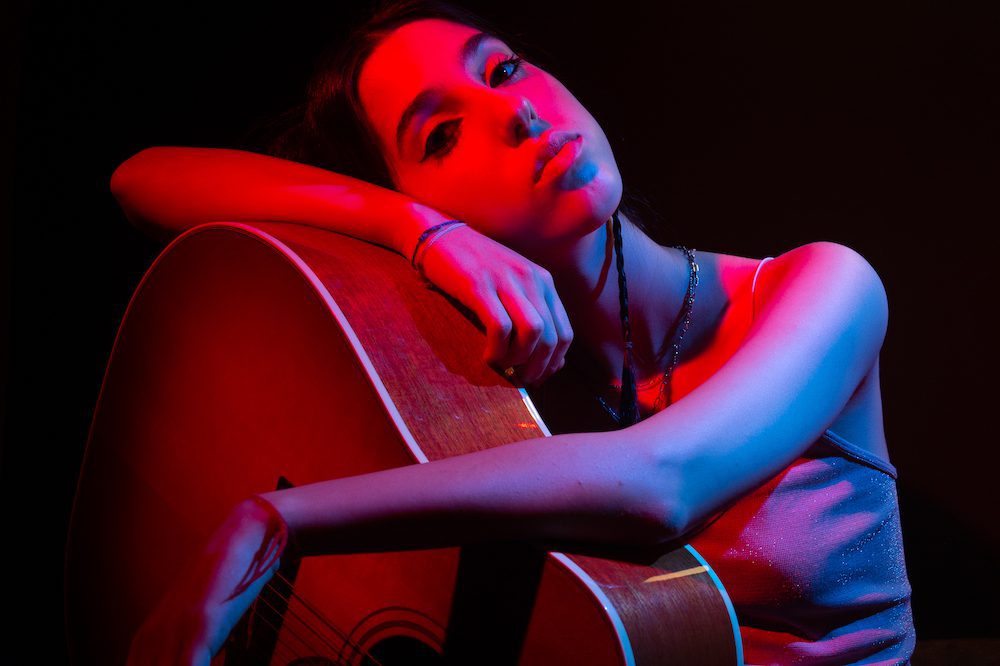

It’s been a roller coaster of a decade, even on the pop culture front. With the dominance of social media, the rise of streaming platforms and increasingly smarter phones, how we discover, ingest and interact with music has changed drastically. In an era where new hits can have the shelf life of a trending topic and a 40-something year old Dolly Parton song can come back as a meme, Robyn unleashed a tune that would withstand a decade of fast-paced trends and dramatic shifts in technology and culture. With “Dancing on My Own,” the Swedish singer didn’t just give us a song to help define this decade, she gave us the “Jolene” of the 2010s.
Robyn did this with devastating lyrics, a voice that articulates a mess of emotions and a beat that places you inside the club that is the setting for this scene. While ’70s disco and ’80s synthpop are clearly an influence, “Dancing on My Own” is no throwback. Instead, it retains a timeless quality with a sense of musical restraint; the beats and synths never compete with her voice and words. In less than five minutes, Robyn takes the listeners on a ride through embarrassment (“Yeah, I know it’s stupid, I just gotta see it for myself”), frustration (“I’m right over here, why can’t you see me?”) and resignation (“I just came to say goodbye”). In the process, she created something for the dance floor, the karaoke stage, the car and the shower. She made a song that can bring people together for collective solace and one that can make you cry when you think no one is watching.
“Dancing on My Own” takes its cues from the history of sad club music, but at its core, this song has more in common with Dolly Parton’s 1973 country classic. They tell completely different stories. With “Jolene,” Parton sings a plea in an attempt to stop the heartbreak before it happens (“My happiness depends on you”). In “Dancing on My Own,” Robyn sings of pining for a love that has already moved on to someone else (“Somebody said you got a new friend”). Both songs, though, create incredibly vivid scenarios of the gestures people make to try and hang on to a love that might already be long-gone and the pain that results from that. They tap into these visceral emotions so skillfully that you can’t help to sing and dance, even when it hurts to do so.
“Jolene” may not be Parton’s biggest hit, but it’s an enduring one. Over decades, it’s been covered numerous times by an eclectic array of artists that includes ’80s goth-pop duo Strawberry Switchblade, The White Stripes and Miley Cyrus. In recent years, it’s fueled a slew of memes, including a riff on the “distracted boyfriend” image that was shared on Twitter by Parton herself. Meanwhile, “Dancing on My Own,” still less than a 10 years old, is on the trajectory to classic status.
At the dawn of the decade, Robyn was already one of the hippest indie pop singers around. She had flirted with the mainstream in the 1990s and early ’00s, but eschewed that route and launched her own Konichiwa Records for the release of her 2005 self-titled album. Her mix of emotional synthpop (“With Every Heartbeat”) and fun dance tunes (“Konichiwa Bitches”) earned critical acclaim and garnered her a new legion of fans. By 2010, Robyn’s next move was anticipated and she responded with the Body Talk series of releases. “Dancing on My Own” was initially featured on Body Talk Pt. 1 in June of 2010 and reappeared on the full-length Body Talk album in November of that year.
But, that all seems like the distant past now. “Dancing on My Own” harks back to a part of the decade when Barack Obama was only a couple years into his presidency and slogans like “hope” and “change” permeated American culture. Binge-watching TV shows on Netflix had yet to become a major pastime and Instagram was in the midst of its birth. “Dancing on My Own” is, in some ways, a link to the ’00s, when dance floor-friendly indie artists with their genre-blending influences ruled everywhere from nightclubs to music blogs. But, it’s also a song that grew as the ’10s progressed.
Sure, “Dancing on My Own” had some chart success in multiple countries upon release and, yes, it was often praised by critics. However, its stickiness increased with appearances on television shows, like Gossip Girl (2010), RuPaul’s Drag Race (2012) and Girls (2013). No doubt, it benefited from streaming too. To date, the video has been viewed over 52 million times on YouTube. On Spotify, it’s Robyn’s most popular track, with over 150 million plays. By the middle of the decade, “Dancing On My Own” had gained a second life with a cover by Calum Scott that originated on the TV show Britain’s Got Talent. While Robyn has continued to make excellent music over the decade, including her 2018 album Honey, “Dancing on My Own” has become her signature song.
It’s a song whose magnetism has grown with time. You can see that in the way “Dancing on My Own” still draws people to the dance floor. They’ll lip-sync (or, sometimes, even shout) the lyrics. Their dance moves might mirror the song – “Stilettos on broken bottles/I’m spinning around in circles” – or they might move with a faraway look in their eyes, like the song is life right in that moment.
However they groove, it’s with an intensity you no longer typically see for the music of the early ’10s. It’s the sort of response you’ll see for the latest hits or songs that have already aged into the category of forever jams, but really, “Dancing On My Own” is neither. It exists in an in-between area where so many other songs might fade into semi-obscurity until their home decade becomes the subject of a revival. That fate, though, has not hit “Dancing On My Own.” Like “Jolene,” its impact is still profound. These are songs that can leave you huddled in a pool of tears by their end. But, they’re also cathartic, providing the release we need when the world is crashing around us. It’s a rare moment in any decade when artists can do that.




